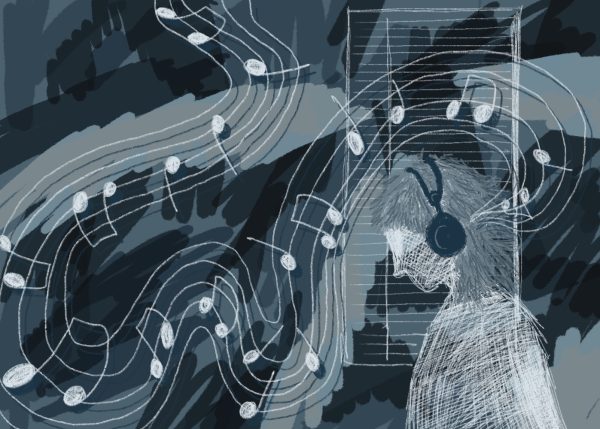Rapper comes into his own on debut album
September 9, 2017
Twenty-four year old Vic Mensa’s first studio album, “The Autobiography”, formally introduces the world to the talents of a rapper who has double-vision– personally, politically and musically.
Mensa’s deeply personal account of his life as a biracial, middle-class native Chicago South Sider and punk rock-inspired rapper tells the story of a life made political by a racist nation, all while pushing the boundaries of hip-hop music.
Mensa began his career at 18 as a founding member of the rap collective Savemoney, where he frequently collaborated with fellow member Chance the Rapper.
Mensa’s album begins with a portrait of his current success; “Didn’t I (Say I Didn’t)” is a musical look back at where he came from and how he has made it to where he is now. It is driven by a sample of soul artist Darondo and is reminiscent of the production on Jay-Z’s early albums.
He then takes us back to his childhood with “Memories on 47th Street,” named for the street on which he grew up.
The child of a black man and a white woman, Mensa grew up in a middle-class household on the South Side of Chicago next to a poor neighborhood. He existed at the crossroads of many worlds.
The album proceeds with Mensa exploring what makes him unique along with the personal and emotional experiences that result from it. Much of the album is interlaced with specific instances of racism that impacted his life.
Mensa is far from the first rapper to discuss the personal psychological impacts of race and other intersecting identities.
Kendrick Lamar’s “These Walls” off his 2015 album “To Pimp a Butterfly” examines the psychological impact of America’s racist prison system through a complex story of sex, love and urban violence.
But while Lamar has never indicated whether “Butterfly” is about his own life or is a metaphorical vehicle, Mensa is explicit: this is his story. He said this album is his capsule of who he is in 2017, according to a June 8 Rolling Stones article.
He is also a step away from much of the hip-hop music to come out of the city in the past 10 years.
Mensa’s exploration of how it feels to live on the fringe of many identities is echoed in his music which itself is difficult to categorize, delving into what some critics have called the beginning of a “punk moment” for rap.
In “Rollin’ Like a Stoner,” Mensa uses a hard rock-inspired drum beat, and features punk rock band Weezer in “Homewrecker.”
His flawless integration of the two genres is similar to the way he integrates a national conversation into his own life story.
Mensa’s expression of his life and relationships serves as a stepping stone for larger conversations happening around the country and within the genre. His vulnerability is a window to a larger picture.

















